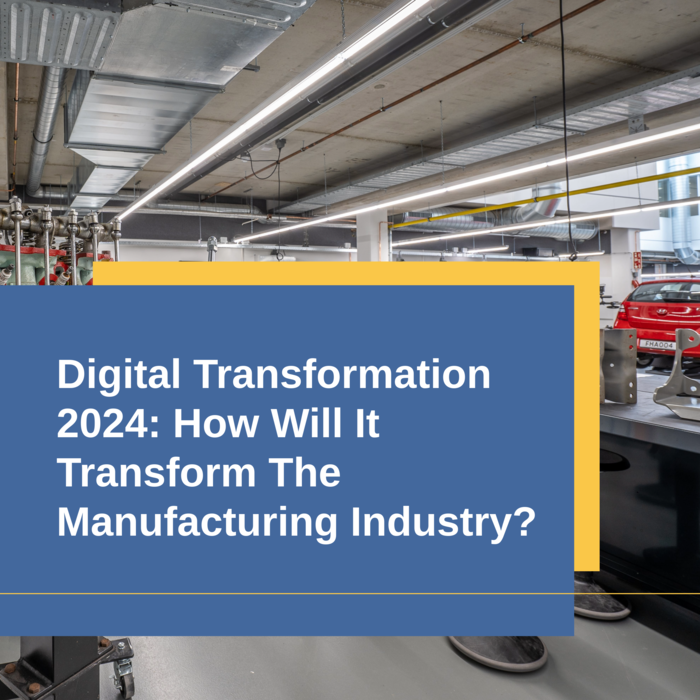Digital Transformation 2024: How Will It Transform The Manufacturing Industry?

Digital transformation has left a footprint in almost every industry in the world. COVID-19 has propelled this transformation even further, promoting a shift towards a more digitized and automated world. Digitization trend did not bypass the manufacturing industry either. In our next blog, we will cover top digital transformation trends set to affect the manufacturing industry in 2024, focusing on aspects such as custom software solutions, AI/ML technologies, and more.
Digital Transformation In The Manufacturing Industry In 2024
Use of technology
Technology is a key aspect driving digital transformation in the manufacturing industry. Integrating innovative custom software solutions into the production process has an immense potential to optimize production workflow, increasing throughput and reducing the use of resources. Inventory management software aids in round-the-clock inventory monitoring; forecasting and analytics software aids in intelligent decision making; manufacturing software solutions streamline workflow - software technology is implemented in all stages of the production process.
Artificial Intelligence & Machine Learning
Artificial intelligence & machine learning (AI and ML) technologies are integrated into various areas of business operations. The value of AI is in its ability to process large amounts of data in real time. The data is further analyzed, allowing manufacturers to identify patterns in the production process, simplifying their decision-making.
ML algorithms are also used in manufacturing processes to improve efficiency and production. They are used to analyze the data and identify defects in equipment performance, allowing manufacturers to spot issues early in the production process, promoting proactive approach to equipment maintenance.
Robotics & automation
Integration of robotics in the production process is no new to the manufacturing industry. Robots were first introduced in the 1960s on assembly lines. Today, they are used extensively in many manufacturing aspects, and their utilization is only growing. Robots are mainly used to perform repetitive manual tasks, improving product quality and production speed.
One of the recent innovations in the use of robotics was the merging of robots and IIoT sensors to analyze datasets, promoting a more reactive production environment. Robots help optimize the production process, minimize errors and improve product quality, overall enhancing productivity of the plant.
Smart manufacturing
Smart manufacturing is a collective term defining tools and technologies enforced in the manufacturing process to make it more optimized, streamlined and productive. Some of the preeminent tools constituting smart manufacturing practices are the above-mentioned artificial intelligence, machine learning, robotics, IIoT and blockchain technologies. These technologies are known for helping reduce manufacturing costs, speed up production process and improve product quality.
To sum up
Digital transformation is an ongoing process emerging in the 20th century and maintaining its pace in the present day. Digital transformation is set to make the manufacturing industry more productive and efficient. Innovative technologies, such as AI, ML, automation and robotics, are helping manufacturers improve their production process and retain maximum value from it. As we witness the digitization in the manufacturing industry, we can expect to see better product quality and production rates as well as safer and more secure manufacturing facilities.
